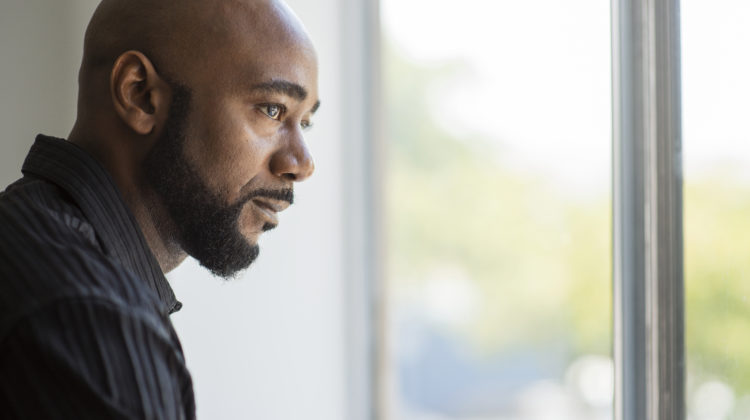
Only one in three African-Americans who need mental healthcare receive it. The numbers are even grimmer when we consider Black men's mental wellness.
For the past few decades, there has been growing interest in improving Black men's health and the health disparities affecting them. Yet, the health of Black men consistently ranks lowest across nearly all groups in the United States.
Evidence on the health and social causes of morbidity and mortality among Black men has been narrowly concentrated on public health problems (e.g., violence, prostate cancer, and HIV/AIDS) and determinants of health (e.g., education and male gender socialization).
Author Bell Hooks’ work We Real Cool: Black Men and Masculinity discusses the lack of love and acceptance that Black men face, creating an emotional crisis.
Many Black men have not been told how to process and talk about their emotional experiences, furthering a sense of isolation, anger, and resentment. For these men, this creates an emotional volatility that can sometimes manifest in seeming “shut down” in relationships and friendships. At its worst, this budding resentment can manifest in outward expression of anger, aggression, and even violence. This is discussed further in Charlie Donaldson’s and Randy Flood’s book Mascupathy: Understanding and Healing the Malaise of American Manhood.
Many men (arguably most) struggle with the idea of being openly vulnerable and sharing their emotions with their community, their partner, loved ones or even those closest to them.
As evidenced by the tragic murder of George Floyd last summer, it’s been proven time and time again that Black men too often pay the price with their lives in fatal police encounters. But there’s another price: their minds.
This is something that Kevin Dedner, founder of the mental health platform Hurdle, knew too well.
“After years of working in the public health sector, I was familiar with the invisible barriers to mental wellness in the Black community, particularly with men,” he said.
Overall, Black men have a lower average life expectancy and higher rates of stress, anxiety, and depression than their white counterparts.
The Census Bureau showed 41% of Black Americans screened positive for clinically significant signs of depressive disorders — a 5% spike in the aftermath of the public video of George Floyd’s death. This number represents roughly 1.5 million people.
<
Now more than ever, mental health is being prioritized, particularly with Black women but men are lagging behind due to historical mistrust of the medical system.
Unfortunately, with rising rates of mental health disorders in Black men can no longer afford to put their wellness on the backburner. Here are four reasons why they should consider therapy immediately.
- Therapy helps identify and resolve unhealed trauma
- It builds psychological fortitude
Fast forward through 15 years of work in public health: Kevin has just secured $5 million in seed funding for Hurdle, the digital mental health company he founded to help people suffering from mental health issues, with a special focus on people of color. (That's no small feat, considering less than 2% of capital goes to people of color.)
And it couldn't come at a better time: in late May, data from the Census Bureau showed 41% of Black Americans screened positive for clinically significant signs of depressive disorders — a 5% spike in the aftermath of the public video of George Floyd’s death. This number represents roughly 1.5 million people.
But therapy as we know it was designed by and for people of privilege, Kevin says: It's filled with invisible barriers that make it harder for people of color to get the mental healthcare they need and deserve. So Kevin and his team designed a scientific framework to train therapists in cultural humility and responsiveness — which research has proven improves therapy outcomes.
Working directly with insurers and large employers, Hurdle is offering self-care apps, wellness workshops, and teletherapy for individuals, couples, and groups with a focus on culturally-sensitive care.
Would you be interested in speaking with Kevin to learn more about his incredible journey — from his own struggle with depression to starting a company breaking down barriers to mental healthcare for people of color?








